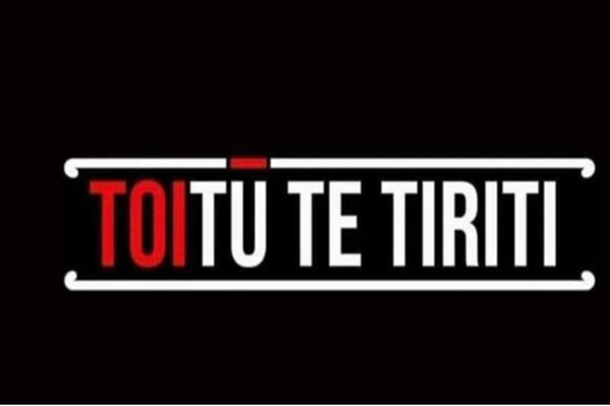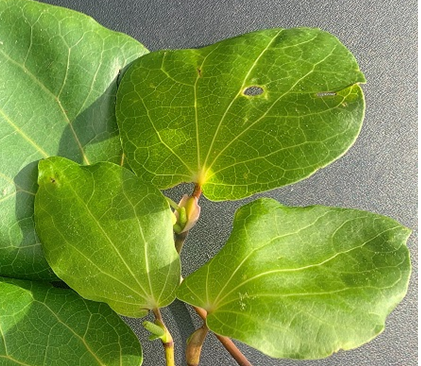Categories
Archive
- July 2025
- June 2025
- May 2025
- April 2025
- March 2025
- February 2025
- January 2025
- November 2024
- October 2024
- September 2024
- August 2024
- June 2024
- May 2024
- April 2024
- March 2024
- February 2024
- January 2024
- December 2023
- November 2023
- October 2023
- September 2023
- August 2023
- June 2023
- April 2023
- March 2023
- February 2023
- January 2023
- December 2022
- November 2022
- October 2022
- August 2022
- July 2022
- May 2022
- March 2022
- February 2022
- November 2021
- October 2021
- September 2021
- August 2021
- July 2021
- June 2021
- May 2021
- April 2021
- March 2021
- January 2021
- December 2020
- November 2020
- October 2020
- September 2020
- August 2020
- June 2020
- May 2020
- April 2020
- March 2020
- February 2020
- January 2020
- December 2019
- November 2019
- October 2019
- September 2019
- July 2019
- June 2019
- May 2019
- April 2019
- March 2019
- February 2019
- January 2019
- December 2018
- November 2018
- October 2018
- September 2018
- August 2018
- June 2018
- May 2018
- April 2018
- March 2018
- February 2018
- January 2018
- December 2017
- November 2017
- August 2017
- July 2017
- June 2017
- May 2017
- April 2017
- March 2017
- February 2017
- January 2017
- November 2016
- October 2016
- September 2016
- August 2016
- July 2016
- June 2016
- May 2016
- April 2016
- March 2016
- January 2016
- December 2015
- November 2015
- October 2015
- September 2015
- July 2015
- June 2015
- May 2015
- April 2015
- October 2014
- August 2014
- January 2014
- December 2013
- November 2013
- October 2013
- July 2013
- June 2013
- May 2013
- April 2013
- March 2013
- January 2013
- December 2012
- November 2012
- September 2012
- May 2012
- January 2012
- November 2011
- October 2011
- September 2011
- August 2011
- July 2011
- June 2011
- May 2011
- April 2011
- March 2011
- October 2010
- September 2010
- May 2010
- April 2010
- March 2010
- January 2010
- October 2009
- September 2009
- August 2009
- June 2009
- April 2009
- March 2009
- February 2009
- January 2009
- December 2008
- November 2008
- September 2008
- August 2008
- July 2008
- June 2008
- April 2008
- March 2008
- January 2008
- December 2007
- November 2007
- October 2007
- July 2007
- April 2006
- August 212
-

Cyber activism removes Toitū te Tiriti Lawyer form social media
Toitū te Tiriti Lawyer, Tania Waikato who has become prominent online with sharing legal advise, tutorials about how to write submissions against the racist Regulatory Standards Bill here in New Zealand has been banned from Facebook. Her content was civil, polite and factual. It only served to enlighten people of the impacts of the bill…
-

Treaty Principals Bill Scaremongering
Misleading journalism about the Treaty Principals Bill web site being attacked could lead to similar actions of accusations of interference in the election when Donald Trump lost his second campaign. This lead to his supporters defending their views of political interference which resulted in civil unrest. RNZ, while usually a reputable and balanced New Zealand…
-

X (Formerly Twitter) is allowing 3rd parties to train AI on its data starting Nov 15
Earlier this week X (formerly Twitter) updated its Privacy Policy to indicate that it would allow third-party “collaborators” to train their AI models on X data, unless users opt out. Thanks to TechCrunch who first published the details. If you have already locked down your Twitter Privacy, there appears no change. This is a timely reminder that your posts…
-

Scammers target Māori Tangi
In a new threat to Māori online, a new scam is increasing where scammers are creating false social media accounts as death notices and online funeral streaming accounts. Facebook and other social media has become an essential way of communications, particularly with Māori. Many of us find that if we stop using social media, we…
-

Maori a popular search term with porn
WARNING: This article should be read by adults and in conjunction to having knowledge of the over representation of Māori victims of online sexual abuse/harassment. Pornhub, New Zealand’s most viewed pornographic web site released its New Zealand 2022 statistics in November (Stats link page with terms that some may find offensive and likely not…
-

Māori experiences with online harmful or inappropriate content
The Classifications Office released a report called “What we’re watching New Zealanders’ views about what we see on screen and online”. This is an analysis of the Māori findings with a conclusion identifying some possible solutions.
-

Online safety research ignores Māori
The latest research report Global Kids Online: Digital Parenting Strategies and Behaviours of New Zealand Parents, published by NetSafe interviewed parents of children aged 9-17 about the prevalence of different practices to influence or mediate children’s internet use. Yey! Māori and Pacifika were under represented in the research, Further contributing to the increasing discrimination and…
-

Māori perspective to the Films, Videos, and Publications Classification Amendment Bill
Research and statistics show that Māori are more likely to see harmful material online and to be victims of online bullying. Often Māori are the primary person in harmful materials online. Statistics released by the Ministry of Justice show that the main culprits are European men. Despite these alarming facts, Māori voices or at least…
-

European men mostly charged under Harmful Digital Communications Act
In New Zealand European men aged between 20 and 39 years old are most likely to commit harmful digital acts and be charged, according to the annual statistics from the Ministry of Justice. The most likely victims of harmful digital communications are young Māori females, then Pacific and Asian females (NetSafe). Yet, Māori are more…
-

Māori Children online safety statistics analysis
NetSafe released their second Ngā taiohi matihiko o Aotearoa – New Zealand Kids Online. The research analyses New Zealand children’s experiences of online risks and their perceptions of harm. Two milestones for Māori. One ‘Kia ora’ is spelled orthographically correct this time (also AirNZ has rectified this too) removing a distraction. I believe this is…
-

Māori statistics of online Hate Speech
This is a summary of Māori statistics extracted from the 2019 Net Safe Hate Speech Report “Measuring trends in online hate speech victimisation and exposure, and attitudes in New Zealand.” The report explores adult New Zealanders’ personal experiences of, and exposure to, online hate speech. It was as a direct result to the March 15…
-

Māori children’s access to the Internet
This is a summary of Māori statistics extracted from the Net Safe Report “Exploring New Zealand children’s internet access, skills and opportunities”. The research report presents findings from a study that explores New Zealand children aged between 9 and 18, their internet access, online skills, practices, and opportunities. In terms of ethnicity, the sample was…
-
Māori Internet Safety Statistics 2019
A summary of Māori Internet safety statistics taken from three NetSafe reports from 2019. Image based sexual abuse report (2019) Threatening someone with image-based sexual abuse was more common among Asian (8%) and Māori (6%) compared with other ethnic groups. Parents of NZ European/Pākehā, Māori, and Pacific children were significantly more worried about their children…
-
Digital Threats to Democracy that impact Māori
A Law Foundation-funded report Digital Threats to Democracy, one of the most in-depth reports published locally to date on the negative side effects accompanying the rise of digital media. The report also considers Māori and Indigenous democratic issues. Again, the first time this has occurred. I have extracted key Māori views from the report which…
-
te reo Maori Spam
Be aware of Spam being circulated using Te Reo Māori and another language. Below is a screen shot of the latest te reo Māori spam I received. While this is not very sophisticated, it very quickly and easily could be made to look legit and from someone you know. Unfortunately there are no services to…
-

Māori hacker retaliates against white supremacists
This is an analysis of the hacker who calls them-self “Māori” who inserted a disk wiping code into the alleged Christchurch mosques alleged shooter’s manifesto. It is not the first time we have seen a vigilante Māori hacker(s) appear from the dark and then dissapear again. The first time a Māori hacker gained international attention…
-
Māori are still prominent victims of online bullying
Māori are still prominent victims of online bullying according to the latest research by Action Station discussing impacts and usefulness of the Harmful Digital Communications Act (HDCA) a powerful piece of legislation that was enacted to address the issue of online abuse. However it is not sufficient to address every issue of online hate, harassment…
-

Online Māori Scams – careful of the scuzzie
Online Māori are increasingly becoming targets of direct ethnic online scams that utilise our culture to try to take advantage of Māori. The latest scam involves someone on Facebook, Instagram, Phone message and other social media claiming to he one of the whanau, a cuzzie. The scams are sophisticated and take a bit of effort.…
